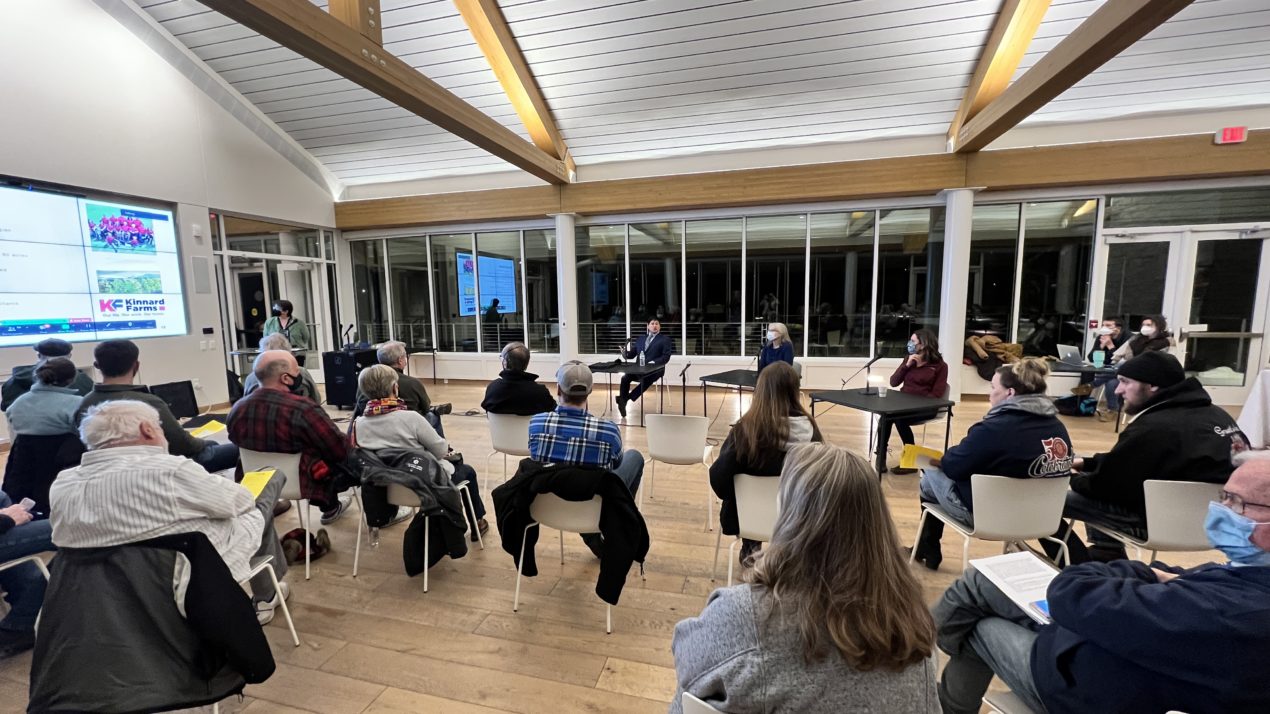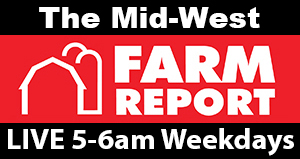
Bringing organizations and networks together to help each other learn, adapt and grow sustainable farming practices on the Door County peninsula is one step the Climate Change Coalition of Door County wanted to accomplish in hosting an event called Soil Health and the Benefits of Regenerative Agriculture.
By that measure, for sure, the group was successful when 130 people participated Jan. 13 — a third in person at the Kress Pavilion in Egg Harbor and the remainder virtually — to discuss solutions already in place and ideas to further mitigate climate change.
Jamie Patton, senior outreach specialist in the University of Wisconsin-Madison’s Nutrient and Pest Management Program, moderated a panel discussion that included two livestock farmers from Peninsula Pride Farms (PPF), a farmer-led conservation group working to improve soil health and water quality in Kewaunee and southern Door counties. A third farmer, a vegetable grower, rounded out the panel.
Patton talked through the functions of healthy soil and soil health-promoting practices, something farmers continue to work toward in their conservation efforts.
“How do we build soil health? We feed it, clothe it and don’t poke at it,” Patton said.
She further explained that using organic fertilizers such as manure, planting cover crops and no-tilling the land are all ways to improve soil health. The panelists shared conservation practices on each of their unique farms.
In addition to having a dairy farm, cover crops and no-till practices, Lauren Brey of Brey Cycle Farm, a PPF member, has 100 beef animals raised on pasture. Her family finds many benefits in a practice known as management-intensive grazing, in which the farmer evaluates cover crops being grown in each paddock and then moves the cattle between paddocks based on the crop growth. The goal is to have one animal per acre. Brey addressed challenges of implementing practices like this sort of grazing.
“You have to have the land base and it has to be somewhere that makes sense with your current infrastructure,” Brey said. “For us, we had some land that was right next to our barns, so it made sense to try installing pasture. It also is beneficial because it allows us to raise our animals at a lower cost per day. Less labor, lower feed costs… They are just eating what’s out there and cover crops are a pretty affordable seed mix.”
Restoring soil organic matter with biomass production is a focus at PPF member Kinnard Farms, a dairy.
“We use the offseason, once the original crop is harvested in fall, we come in immediately and plant another crop (cover). The reason for the additional crop is catching any nutrients that are left out in the soil; we don’t want them leaving the farm. So, this is a really good way to sequester those nutrients,” Lee Kinnard, PPF’s vice president, said. “It also does a great job of keeping that soil covered. Then come spring we plant right into that cover crop, which can be 3-5 feet tall.”
Kinnard’s goal is to grow his own mulch on the land to increase organic matter. The farm has been gaining one tenth of a point organic matter per year and the farm averages 3.5 percent organic matter compared to other land at 2 percent. This is the result of Kinnard Farms implementing no-till and cover crops over the past 30 years.
Char Fatke of Mighty Wind Farms discussed composting on her farm in Sister Bay. Relatively new to farming, she and her husband, Dan, and son, Tay, are working to regenerate the dirt on their land into healthy soil. Char shared the story of how Mighty Wind Farms started as horse pasture and, by working with community members and restaurants to reuse unwanted kitchen scraps and other compostable items, they are feeding the soil and diverting organic material from going into landfills.
The Fatkes grow mostly vegetables for markets, and they have a big focus on renewing the soil in which those vegetables grow.
“Compost feeds your soils, where fertilizers feed your plants,” Fatke said. “Success is determined by how good your soil is.”

Leave a Reply